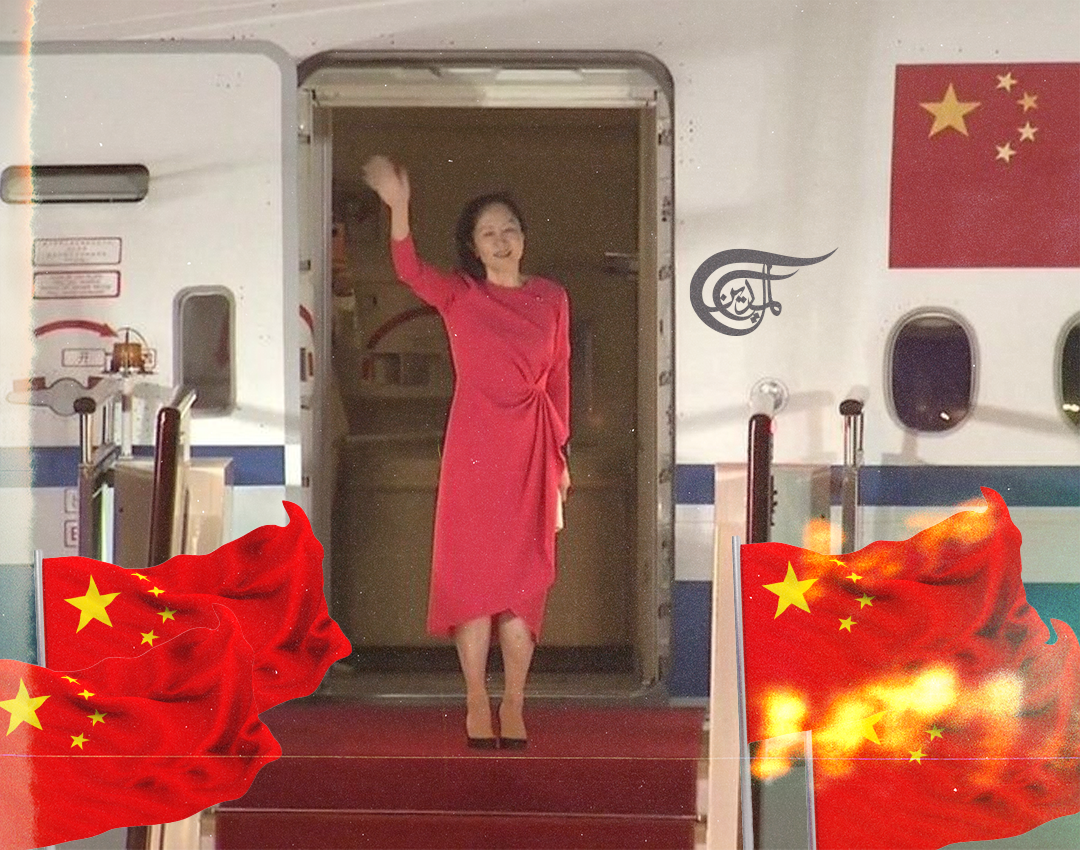The Meng Wanzhou Case Shows the Limits of ‘Lawfare’ and the Course for the Sino-American Competition
The Meng case has also raised several points of comparison with other foreign firms that have fallen victim to Washington’s ire.
On the 25th of September, Meng Wanzhou, the CFO of the Chinese telecommunications giant, Huawei, returned to Shenzhen to a cheering crowd singing patriotic songs after three years of house arrest in Canada. Meng’s return was extensively covered and streamed across Chinese social media, becoming one of the most widely events in the Chinese media this year. This comes at a time where Huawei has been battered by a wide-reaching American push to cripple the company as well as being embroiled in the global chip shortage.
The reasons behind the reception for Meng can be found in how her case and that of Huawei as a whole has become a symbol of China’s global struggle, with the Biden administration seemingly continuing with the trade war initiated by the previous administration. These tensions have seen a greater nationalist push for unity within China, which the CPC has been keen to promote, with the trade tensions being presented as a wider struggle for China’s future prosperity.
In addition, the Meng case has also raised several points of comparison with other foreign firms that have fallen victim to Washington’s ire. One such example can be seen in the Toshiba Kongsberg affair, where the Japanese electronics giant was subjected to severe penalties, including a $100 million fine and the arrest of two of the company’s executives due to its sales of machine tools to the Soviet Union, which violated the COCOM agreement aimed at preventing the export of technology to the Eastern Bloc.
The case of Toshiba raises several parallels with Huawei, with both being companies leading a crucial technology, with the former being a symbol of Japan’s dominance of the semiconductor industry and the latter being a pioneer of 5G technology. In addition, both firms were also targeted under national security concerns, with Huawei’s sales to Iran in violation of American sanctions echoing Toshiba’s sales to the Soviet Union.
Another case similar to Meng’s was the 2013 arrest of Frederic Pierucci, a then senior executive of the French electronics and transportation firm, Alstom. Pierucci was arrested at New York’s JFK airport on corruption charges. The charges were based on Pierucci’s authorisation of bribes to Indonesian government officials to secure a contract for boilers at a power plant.
While Pierucci was convicted of the corruption charges, it has been claimed that the motivation for the case against him was to remove a major competitor to American firms. As with Toshiba, Alstom was also required to pay a hefty fine of $772 million, which led to the acquisition of most of its assets by General Electric, the company’s main American competitor.
After his release, Pierucci wrote his memoirs, titled The American Trap, in which he claimed that the United States was engaged in a secret economic war with the rest of the world. He claimed that this involved the use of legal mechanisms such as the Foreign Corrupt Practices Act to undermine foreign competitors.
Pierucci’s book became a bestseller in China at the height of the Meng case in 2019, with Huawei’s founder and Meng’s father, Ren Zhengfei, being seen reading a Chinese translation of The American Trap. The sudden popularity of the book can be attributed to Meng seemingly falling into the same ‘American Trap’ that snared Pierucci. Along with Toshiba, Huawei has been another example of how Washington utilises ‘lawfare’ to protect American commercial interests.
However, as Pierucci noted in an interview with the Chinese state television network, CGTN, the notable difference between his case and that of Meng is that the Chinese government fully supported Huawei while the French government did not support Alstrom. It is this support that can be seen as one of the key factors behind the different outcomes of the Huawei and Alstrom cases.
Alongside the parallels with earlier cases, Meng’s release has several, wide-reaching consequences. One of these is that in securing Meng’s release, Beijing now appears to be stronger and more unified. As a result, this enables Beijing to present China as one of the few countries able to stand up to the United States, a sentiment that will not go unnoticed by other nations that have earned Washington’s anger.
Therefore, this apparent boost will mean that there will be more ‘Wolf Warrior’ diplomacy from Beijing, as demonstrated by the Alaska summit earlier in the year, when China’s top diplomat, Yang Jiechi, asserted that the United States is “not qualified to speak from a position of strength”. It is these words that characterise China’s present perception of the US.
Another implication has come in the forms of lawfare utilised by Washington, which appears to have continued with the arrest of Novatek’s CFO, Mark Gyetvay, not long after Meng’s release. Gyetvay’s arrest has been significant since Novatek is one of the firms involved with the controversial Nord Stream 2 pipeline, a project that has been largely opposed by Washington. This raises the question of whether Moscow will be able to support Gyetvay as much as China had supported Meng.
While Gyetvay’s arrest appears to show the continuation of the ‘American Trap’, Meng’s case has been its first major setback in recent years. This is in how other states will be less willing to participate in such moves on Washington’s behalf, especially those that target Chinese VIPs, with Meng’s arrest bringing seemingly little in the way of benefits to Ottawa at the cost of earning Beijing’s wrath. As Alex Lo wrote in the South China Morning Post about the case, it was “a game of chicken where the US blinked first”.
If Lo is correct in describing the case as a game of chicken’, it is also a game that had no good outcomes. Meng’s release has shown the limits of Washington’s reach, which betrays a weakness on its part. However, if Canada had complied with American requests to extradite Meng, this would have likely endangered American nationals in China, who could have found themselves on the receiving end of Chinese lawfare.
In all, the case of Meng and Huawei has been indicative of two main points. The first is that China has increasingly begun to see the United States as a foe and the Chinese appear to be largely unconvinced by Western values, with Washington seemingly violating its’ own values to snare Meng. As a result, any calls for rule of law and a rules-based international order will fall on deaf ears.
Additionally, the case of Huawei has shown that the Sino-American competition is not about competing values and ideologies as the Cold War had been, but rather economic and technological concerns. Just as Toshiba’s previous mastery of semiconductor technology had shown, the control of key technologies will determine the outcome of this competition. Ultimately, this is simply the latest stage of a trade war that is far from being the quick and easy victory that Trump had promised back in 2017.

 Tom Harper
Tom Harper
 7 Min Read
7 Min Read









